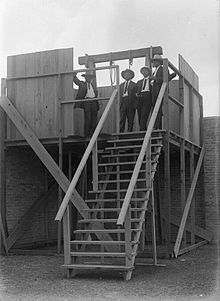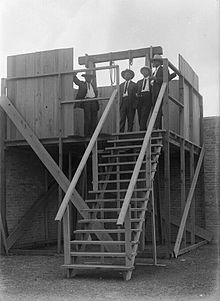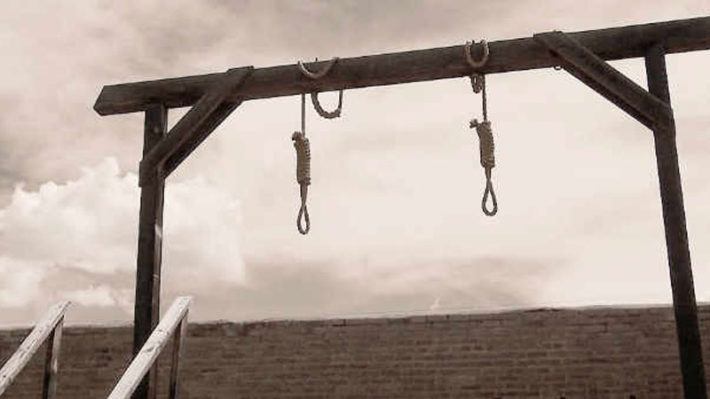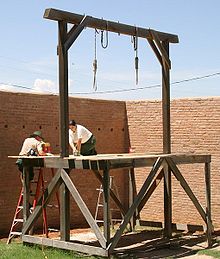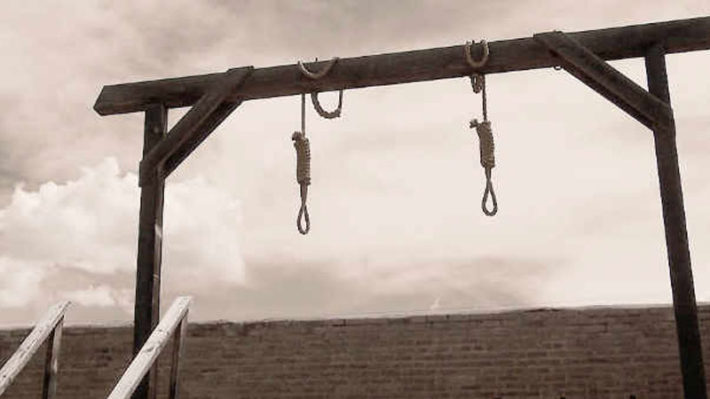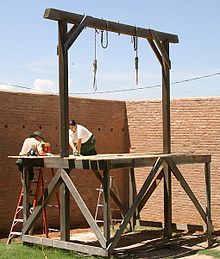
noun, plural gal·lows·es, gal·lows.
- a wooden frame, consisting of a crossbeam on two uprights, on which condemned persons are executed by hanging.
- a similar structure from which something is suspended.
- execution by hanging: a crime deserving of the gallows.
- Also called gallows bitts. Nautical. a support on the deck of a vessel, generally one of two or more, consisting of a crosspiece on two uprights, for spars, boats, etc.
noun plural -lowses or -lows
- a wooden structure usually consisting of two upright posts with a crossbeam from which a rope is suspended, used for hanging criminals
- any timber structure resembling this, such as (in Australia and New Zealand) a frame for hoisting up the bodies of slaughtered cattle
- the gallows execution by hanging
c.1300, plural of Middle English galwe “gallows” (mid-13c.), from Old Norse galgi “gallows,” or from Old English galga (Mercian), gealga (West Saxon) “gallows;” all from Proto-Germanic *galgon- “pole” (cf. Old Frisian galga, Middle High German galge “gallows, cross,” German Galgen “gallows,” Gothic galga “cross”), from PIE *ghalgh- “branch, rod” (cf. Lithuanian zalga “pole, perch,” Armenian dzalk “pole”). In Old English, also used of the cross of the crucifixion. Plural because made of two poles.
 Liberal Dictionary English Dictionary
Liberal Dictionary English Dictionary
